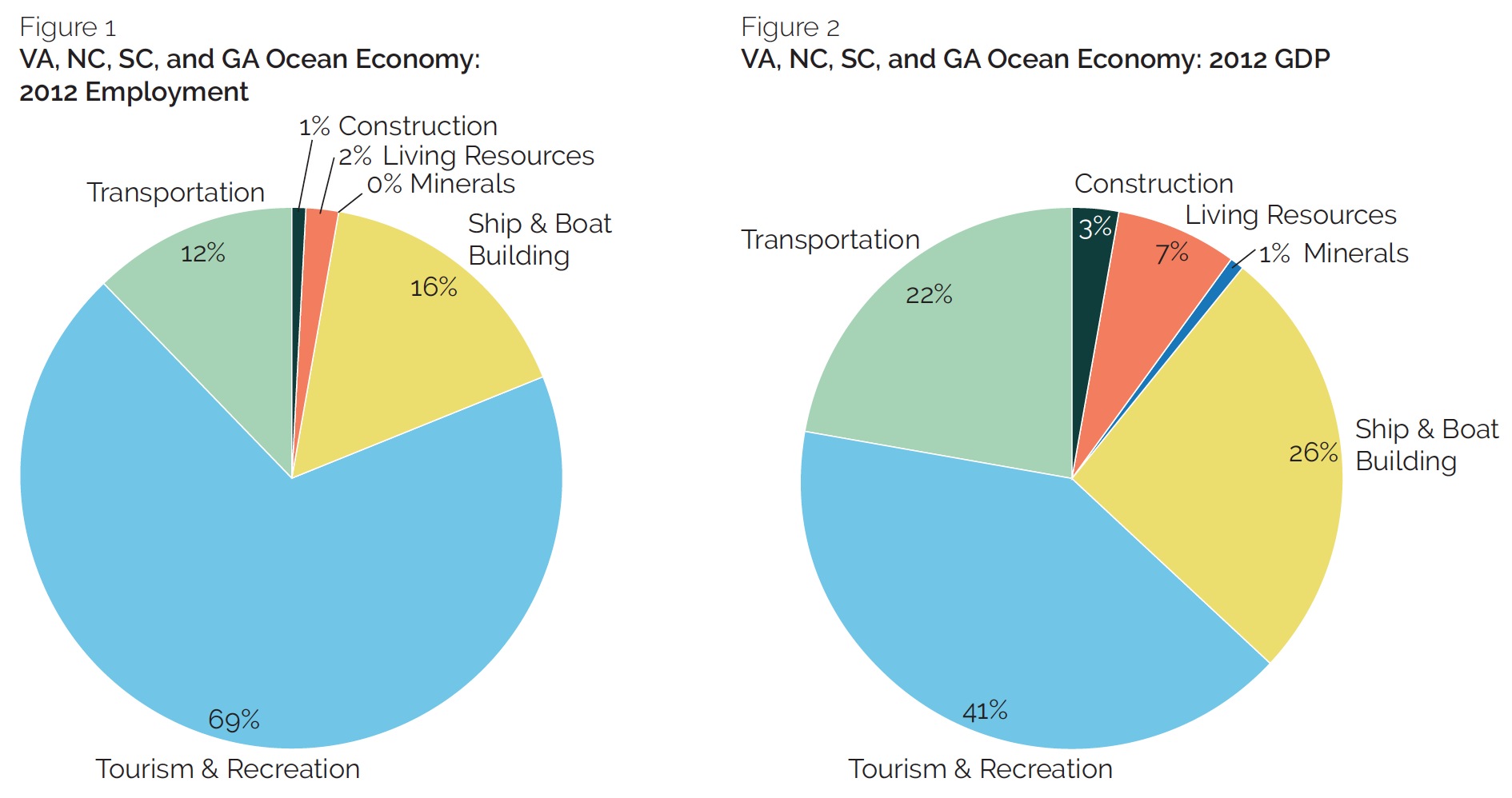MIDDLEBURY INSTITUTE OF INTERNATIONAL STUDIES AT MONTEREY
CENTER FOR THE BLUE ECONOMY
Summary Report
In 2013, the American Petroleum Institute and the National Ocean Industries Association, oil and gas industry groups, commissioned Quest Offshore Resources, Inc., to prepare a report (the Quest report) on the economic impacts of offshore drilling in the Atlantic. This report has been widely cited to make the case for opening the Southeast to oil and gas development based on significant local, state, and regional benefits from drilling.
The report, however, was based on an incomplete and misleading economic picture, which resulted in overstating the likely regional economic effects of offshore oil and gas exploration and development.
This summary identifies issues with the Quest report that lead to significant overestimates of the economic impacts of offshore drilling in the Atlantic and provides an overview of the existing ocean economy of the South Atlantic region in order to provide the context of the industries that could be vulnerable to disruptions from oil and gas activity.
For purposes of this assessment, the region of interest consists of Virginia, North Carolina, South Carolina, and Georgia and is designated as the “South Atlantic” region. In Department of the Interior planning, Virginia and North Carolina are included in the “Mid-Atlantic” planning region, while South Carolina and Georgia are in the “South Atlantic.” In this assessment, however, all four states will be referred to as falling within the South Atlantic region.
Key Findings
- The existing ocean economy in Virginia, North Carolina, South Carolina, and Georgia accounted for 249,000 jobs in 2012 and is thus larger than the Quest estimates for oil and gas employment in 2035, which as noted appear to be exaggerated.
- Employment in sectors that have been vulnerable to disruption from oil and gas development is significant in the region.
- The Quest report was prepared before the Department of the Interior released its leasing proposal in 2015, and is therefore based on scenarios that assume significantly more leasing in the near term than will actually be undertaken in the Department of Interior’s still preliminary plans.
- – The report assumes that lease sales will be held annually beginning in 2018, but the Department of the Interior has proposed only one lease sale, to be held in 2021.
- – The report assumes that production will begin in 2026, but production would likely not begin until at least 2029 under the actual proposal.
- – The report assumes that Atlantic drilling can take place in all federal waters, but the Department of the Interior is proposing to limit oil and gas activity to areas off the coasts of Virginia, North Carolina, South Carolina, and Georgia, and has proposed a 50-mile buffer from the coastline within which drilling would be prohibited.
- Employment estimates in the Quest report are likely exaggerated. It is unclear, for example, how much of the projected employment will be filled by residents outside the South Atlantic region.
- The Quest report fails to disclose key assumptions about the location of support activities such as equipment manufacturing and does not distinguish between oil- and gas-related economic activities taking place in the South Atlantic and those based outside the region.
- The Quest report examines the impacts if Atlantic coast states were to receive revenue sharing from the federal government, as Gulf of Mexico states do, but it fails to acknowledge the long history of difficulty of establishing revenue sharing in Congress.
About the Center for the Blue Economy
centerfortheblueeconomy.org
The CBE is housed within the International Environmental Policy (IEP) Program of the Middlebury Institute of International Studies at Monterey. CBE seeks to educate the next generation of marine leaders, equipping them with essential interdisciplinary skills to synthesize complex information, manage diverse teams, produce original research, and help shape and direct the agenda for global marine policy and management.
Tags: American Petroleum Institute, CBE, Center for the Blue Economy, Drilling, Middlebury Institute of International Studies at Monterey, MIIS, Oceans, South Atlantic







 RSS Feed
RSS Feed